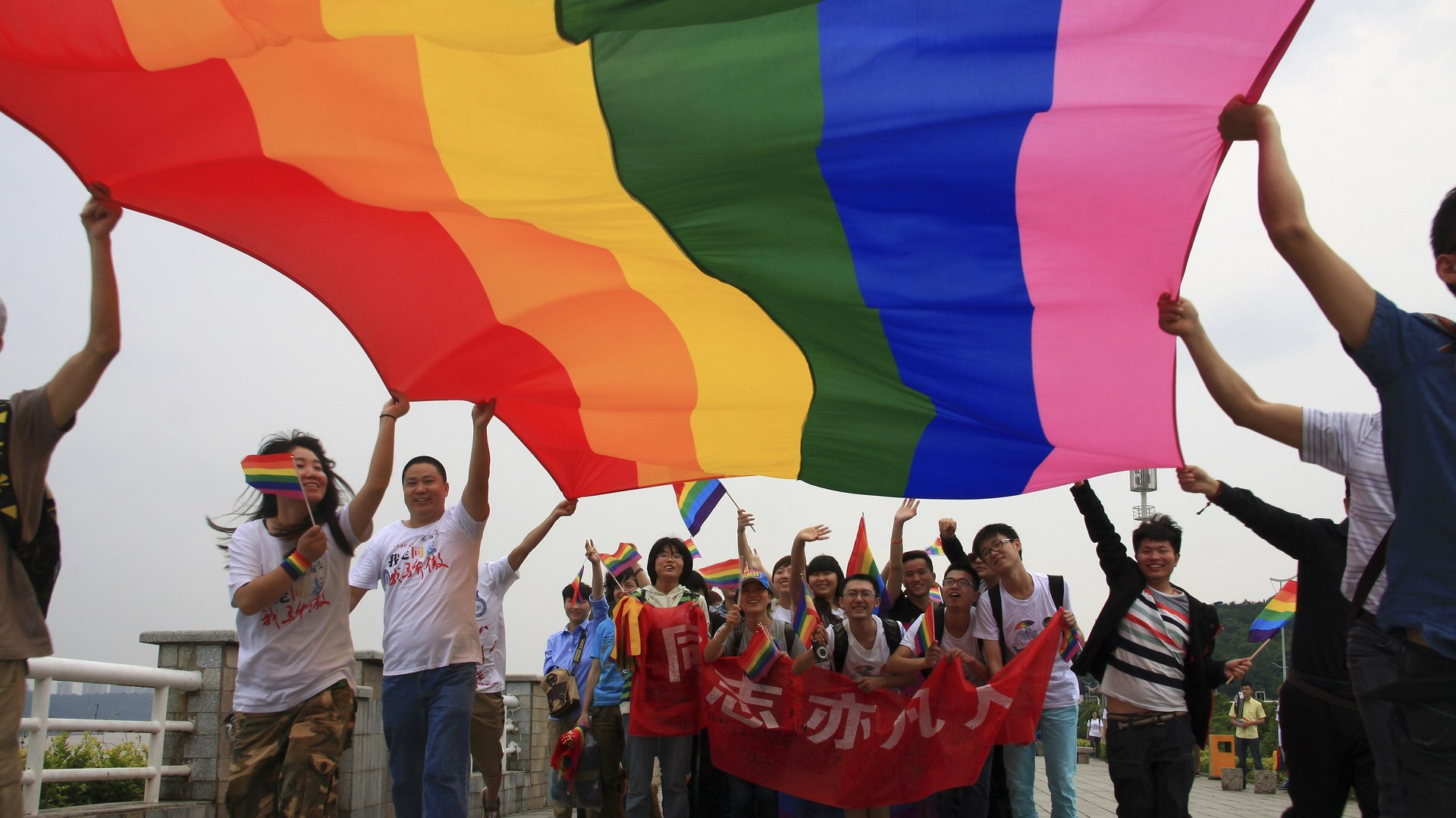“Comrade!” how gay Chinese appropriated the word the Communist Party is trying to revive
Meetings of China’s Communist Party are about to get rather entertaining. In a bid to restore discipline, the party has issued written guidelines that say all cadres should now greet each other as “comrade.” The trouble is that, having fallen into disuse among the general population, “comrade” is now a common greeting among gay people.


Meetings of China’s Communist Party are about to get rather entertaining. In a bid to restore discipline, the party has issued written guidelines that say all cadres should now greet each other as “comrade.” The trouble is that, having fallen into disuse among the general population, “comrade” is now a common greeting among gay people.
The directive was included in new rules published earlier in November that outlined stricter party governance, and which encouraged members “to further consolidate their communist faith.” According to the South China Morning Post, an article published on the party’s website last week claimed that reviving the term would help “build an atmosphere of equality”.
Chinese gay people adopted “comrade” (or tongzhi, 同志) as a term of address in the late 1980s (paywall). Today they still use it widely, to the annoyance of some: In 2012, China’s foremost dictionary excluded the gay reference in its definition of tongzhi, with one of the compilers telling the BBC that they “don’t want to draw attention to these things.”
Originating in the early Qin Dynasty (221-206 BC), tongzhi became a common form of address during China’s Communist Revolution (1921-49). Andrew Wong, a professor of anthropology at the University of California East Bay, explains that (paywall) the term “signalled solidarity, equality, respect, and intimacy among the revolutionaries.”
As China’s market economy began to open up from 1978, the term’s popularity began to wane, write Edmond J. Coleman and Wah-Shan Chou in Tongzhi: Politics of Same-Sex Eroticism in Chinese Societies. Meanwhile, gay people were appropriating it. Coleman and Chou say it was first adopted by an activist at the first Lesbian and Gay Film Festival in Hong Kong in 1989.
The phrase for homosexual, tongxinglian, (同性恋), meaning “same-sex love,” was “a medical term denoting sickness and pathology,” Coleman and Chou write, while tongzhi (“same will” or “same purpose”) was a more positive, gender-neutral, desexualized alternative. “Within a few years, [tongzhi] became the most common usage in Hong Kong and Taiwan,” they add.
In mainland China, it’s used commonly by gay people and sometimes also by straight people. “You could get a straight person saying something like, ‘My tongzhi friend says…’ or ‘I know a tongzhi who…’ But it’s not a universally known term outside the community,” explains Eveline Chao, author of NIUBI!: The Real Chinese You Were Never Taught in School. ”So it does function as this coded thing where people who know the slang might hear someone who doesn’t know it using the term, and smirk.”
There is also a generational element to this. “I know people in their sixties, for instance, who may from time to time say nan tongzhi, 男同志 (male comrade), or nü tongzhi, 女同志 (female comrade) to refer to men and women, with no apparent awareness that the term means anything else,” says Lucas Klein, assistant professor in the School of Chinese at Hong Kong University. No surprise, then, that the members of the Politburo Standing Committee, China’s top decision-making body, are all in their sixties and seventies.